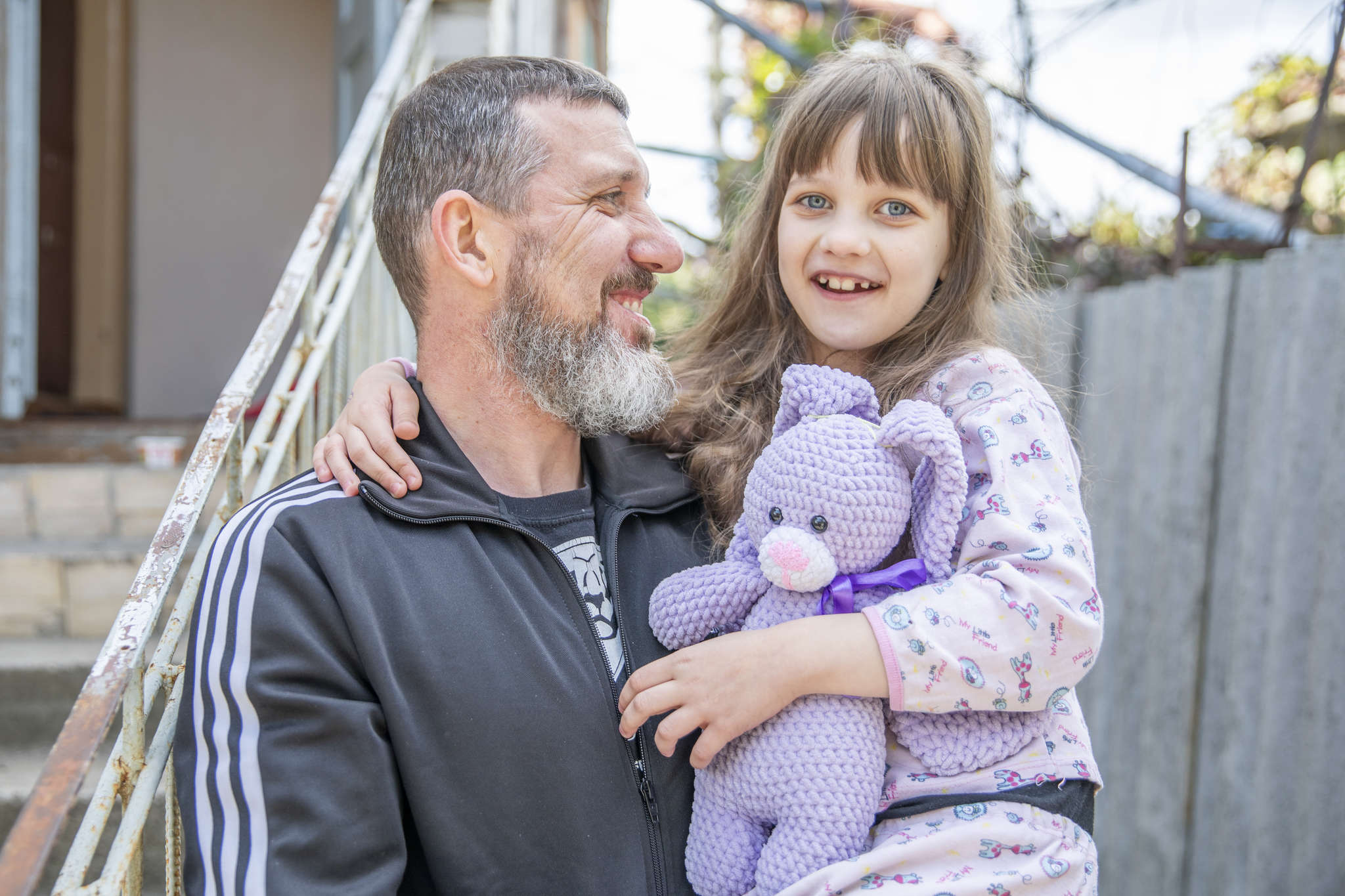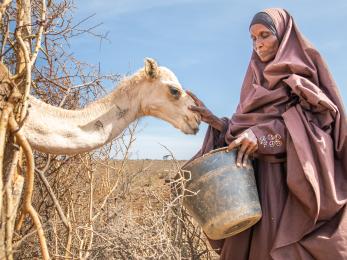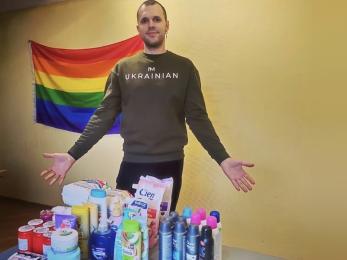“We couldn’t give up”: Resilience and hope in Ukraine
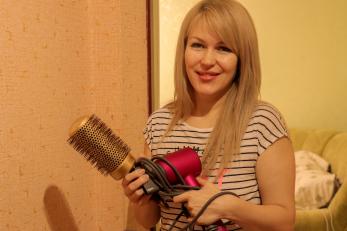
Nataliia (whose name has been changed to protect her privacy) has been a hairdresser for over 15 years. She lived in Mariupol with her husband and two children where they were building a stable life. They’d bought an apartment, paid off a car loan, and Nataliia opened a hair studio. “All our dreams had just come true,” Nataliia said.
However, Nataliia and her family’s lives were forever changed in February 2022 when the full-scale war in Ukraine began. When the shelling started, they hid in a basement, with over 100 other people, for two and a half months. Twenty-two people slept in each room and they relied on rainwater for hydration. Plaster would often fall around them during explosions, and they would shield their faces with towels. In the two years of war in Ukraine, more than six million people have been displaced or have fled their homes.
It’s hard to believe that we went through all this and still didn’t break.
Nataliia, Participant
Nataliia started doing hair to trade for food to feed herself and her kids. “My main aim was to survive and save my children,” Nataliia said. “That's why I even used to cut hair in the basement. We collected rainwater, heated it on a fire, and I would dye, wash, and cut hair. And, in exchange, people would bring me a jar of honey or a bottle of water. We couldn’t give up. People would shine flashlights when I was cutting hair.”
Nataliia’s family, and many others, lost everything. Everyone in the basement created a community where they shared and supported each other. Because of her focus on survival, and the survival of her children, Nataliia’s work helped to distract her during the long periods of time. “I had a feeling that I was on some project. As if it was a reality show like Ultimate Survival rather than reality. It was as if it wasn’t happening to us.”
Even after two and a half months, it was still a shock when they were able to leave and relocate. “When you come out of the basement, and all the trees are shelled, rocks and wires are everywhere, and you remember how the Grand Hotel used to stand beautifully...instead, there were complete ruins. My brain couldn't process it.”
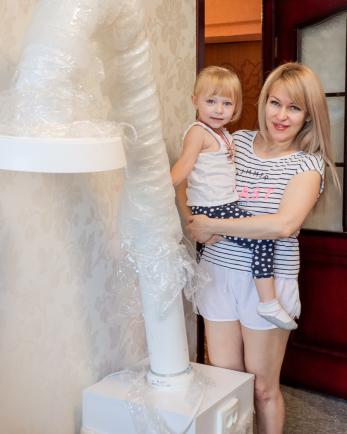
Now, Nataliia works as a hairdresser out of her apartment in Dnipro, where she lives with her family. It is difficult to restart her business in a new city. “I have over 15 years of experience: I’ve participated in competitions, studied in Kyiv and Dnipro, attended and held workshops. I have a lot of certificates, a whole stack of them, but they were all in Mariupol,” said Nataliia.
Creating economic opportunities is a core focus for Mercy Corps, providing cash grants to support micro-, small-, and medium-sized businesses of internally-displaced and conflict-affected people in Ukraine. The cash grants help people to either launch or restore their businesses. People can generate income to reduce the need for cash assistance in the long-term. So far, the programme has sent grants to over 195 small business owners in Ukraine. The entire emergency response has reached more than 240,000 people in Ukraine and over 760,000 people in the region. Individual incomes boost local economies, and the grants help provide a sense of stability for people who have been displaced, as they rebuild a life to support themselves and their families.
Nataliia applied for a business grant which she used to immediately purchase tools, equipment, and supplies so she could wash, dye, cut, blow-dry, and style hair in her apartment. She doesn’t have childcare for her youngest daughter, so she works from home. For Nataliia, the business grant ended up providing more than financial assistance. The money also gave her a morale boost during a difficult time, as her family readjusted. “I started thinking about projects, dreaming, somehow building the future, because before that I lived one day at a time,” said Nataliia.

